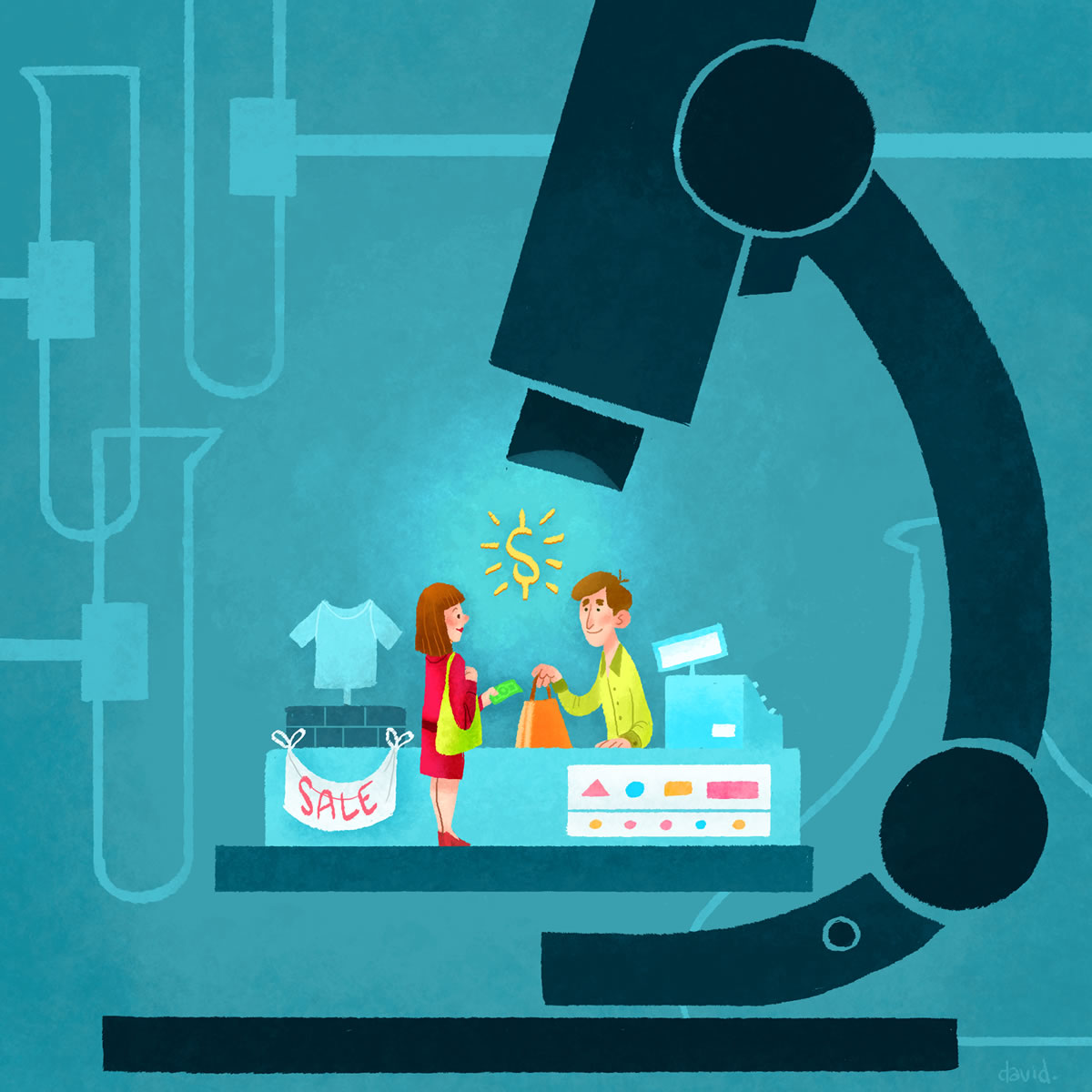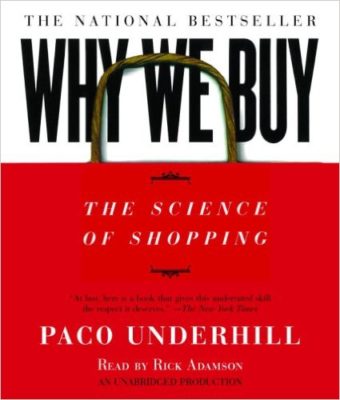An expert in consumer behavior talks strategies for stores.

FIT will offer The Science of Shopping in June. Click here to inquiry about the program.
Recently, the consumer expert Paco Underhill was helping a European jewelry brand plan a new store in Beverly Hills. In France and Italy, their branches have a private chamber for purchases of $100,000 or more. European luxury shoppers, usually from old money, appreciate discretion (especially if they’re not buying for a spouse). But the California location wouldn’t need the secret room, Underhill argued: nouveaux-riches Americans actually like having an audience when they spend.
Fortune 50 companies pay Underhill and his firm, Envirosell, handsomely for such insights. Everyone else can read the editorials he writes for The Wall Street Journal and The New York Times, and his books, including Why We Buy, which has been translated into 27 languages. In January, 13 executives from around the world came to FIT’s Center for Professional Studies for his eight-day course, “The Science of Shopping.” Participants studied how every aspect of the commercial environment affects consumer behavior, learned principles of design for stores and e-commerce, discussed strategies for changing shoppers’ perceptions of their brands, and conducted a case study of an actual retailer.
Traditionally, companies looking to improve sales conduct consumer surveys. But what people think and what they actually do are often quite different. Shoppers, Underhill says, frequently underestimate the time they spend in stores and may even misremember what they purchased. That’s where the science part of his job comes in. Envirosell analyzes video of stores and hires trackers to secretly observe how people shop.
 One of Envirosell’s first clients was a struggling drugstore chain. As the agency scrutinized the stores’ checkout process on video, they noticed people arriving at the registers with their arms laden with items. Simply by placing shopping baskets in a more convenient location, Envirosell helped increase the average purchase by 18 percent. Underhill says 20,000 jobs were saved as a result.
One of Envirosell’s first clients was a struggling drugstore chain. As the agency scrutinized the stores’ checkout process on video, they noticed people arriving at the registers with their arms laden with items. Simply by placing shopping baskets in a more convenient location, Envirosell helped increase the average purchase by 18 percent. Underhill says 20,000 jobs were saved as a result.
Increasing sales is a perennial business challenge, but recent social and cultural changes have left retailers more vulnerable than ever. In their marketing materials, many major brands still cast models who don’t represent the global shopper. “Imagine three women at the MAC counter at Selfridges,” Underhill says. “One might be the third wife of a Somali warlord, another the daughter of a Kazakh executive, and the third a Pakistani ‘Sloane ranger’ [a well-bred Londoner like the ones spotted in Chelsea’s Sloane Square]. They’re not peaches and cream.” And while the average web designer is under 30, the person perusing luxury retailers online may be considerably older. Our corneas yellow as we age, affecting the way we see color: a yellow background on your site may blunt your message.
Though stores have traditionally been owned, designed, and managed by men, the empowered female shopper is altering the retail landscape. The sensuous environment of Victoria’s Secret is one obvious result. Underhill also appreciates the ingenuity of Pirch, a store that specializes in modern bathrooms and kitchens. A typical sale ranges from $40,000 to $60,000. Through an innovative partnership with Tesla Motors, a wife can browse shower fixtures while her husband test drives a Model S (or, presumably, vice versa). Another creative idea is employed by Asiye’s Boutique in Connecticut, which sells prom, homecoming, and specialty dresses using the tagline “Noticeably unique.” To guarantee that no one else is wearing the same style, each dress is registered to a particular event or school.
With all the change, it’s a stressful time in the retail world, but Underhill almost makes the challenge seem like an intellectual game that’s fun to puzzle out. How different, how much more pleasurable shopping would be if every store employed his ideal mix of artful play and scientific rigor.
FIT will offer The Science of Shopping in June. Participants who complete the course will earn a FIT/SUNY Professional Development certificate. Find out more and register at 212 217.7715 or sign up to be notified about updates on the program.
